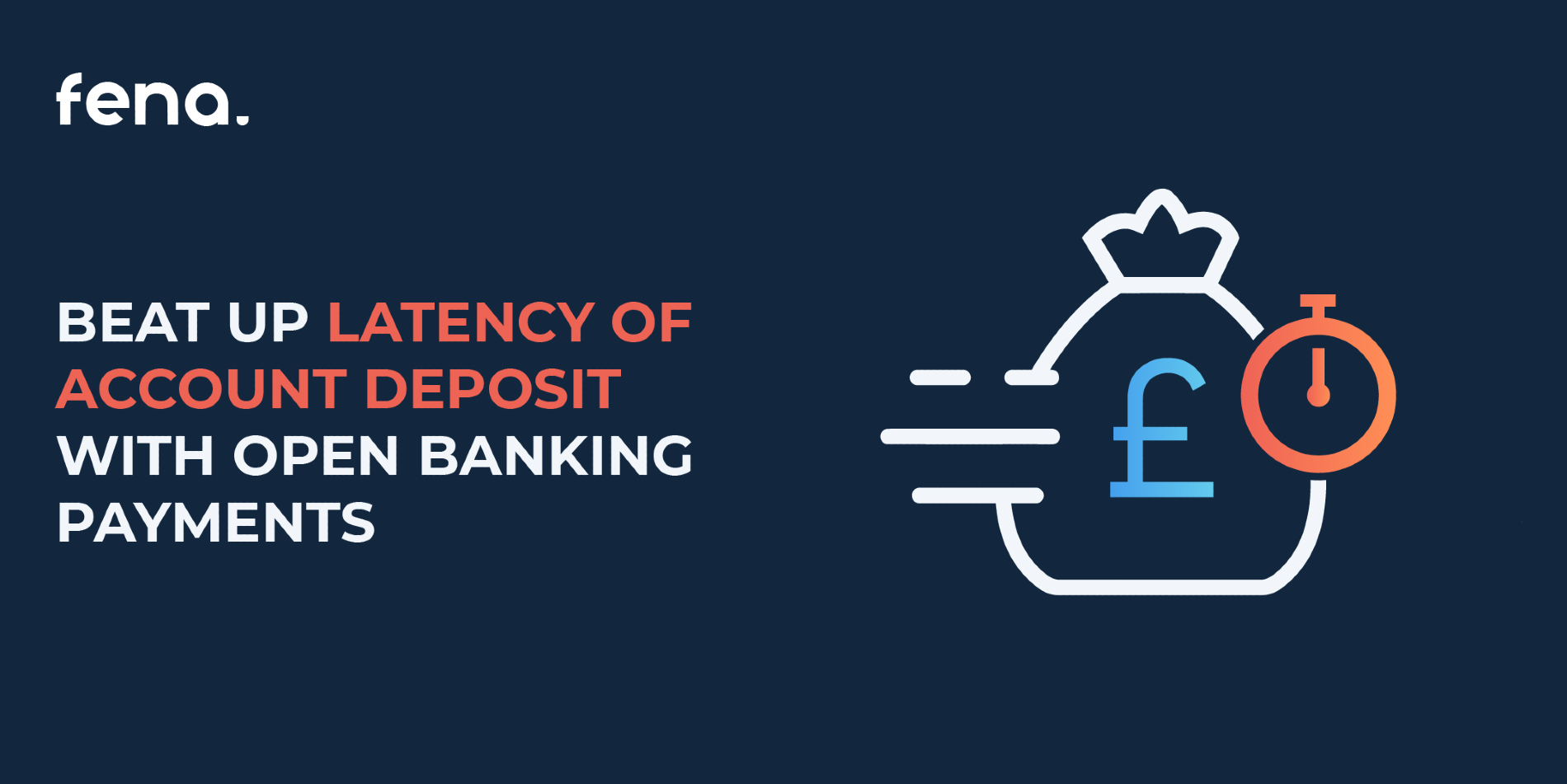Use Open Banking for Investments to Beat Latency Problems
by Gosia Furmanik on May 26, 2022

Using open banking for investments is highly recommended for anyone looking to maximise their profitable returns and efficiency. At first, poor latency doesn't seem like a problem. However, it's one of those things where you don't realise its severity until you have a negative experience.
Latency is the time taken for data to get transferred from one digital entity to another. With poor latency, this can take seconds or minutes. However, having instant transfer speed can help with investments dramatically.
In this circumstance, speed is essential. With instant transfer speeds, you can gain cash flow easier, place investments quicker, and, most importantly, have better control of everything. For more information about how open banking can eliminate problems related to latency, along with how we can help - read the following:
Why open banking eliminates latency problems
The uptake in open banking usage has increased since its release for many reasons. However, one benefit open banking platforms don't get enough credit for is their superior latency.
In many business situations, latency plays an essential role as it's the time taken for data to get transferred between the original source and to another location. Therefore, latency could be the difference between a profitable or unprofitable trade, a required payment date, etc.
With open banking platforms being new, they have the most up-to-date technology. As part of the already innovative features, they have excellent networks that promote instant settlement (aka excellent latency).
Depending on the currency (Euro or Sterling), there are two network options, which are:
SEPA Instant - EU
SEPA is an instant and new bank transfer technology that allows users to make euro transactions in seconds, 24/7, 365 days a year. If you're transferring money from one European payment institution to another, it should be instant with SEPA (or 10 seconds by definition).
The way SEPA Instant payments work is by not using the "big batch" method that many banks use. Instead, open banking allows third-party providers to recognise the payment as "instant" and process it immediately.
In both the B2B and B2C worlds, SEPA is highly recommended because of its speed, flexibility, availability, and maximum transfer amount of 100,000 euros. Additionally, when paired with an open banking service comes affordable and low-cost transaction fees - which is another reason to opt-in for this type of platform.
Faster Payment Network - UK
SEPA covers euros , but what about sterling? Those making transactions with sterling are covered by the Faster Payment Network (FPS) rather than SEPA.
However, each of these services offers features and properties that are remarkably similar. With FPN, you still receive instant payment processing, secure networks, etc. The only major difference is that the maximum transfer amount is £250,000, which is much larger than what's offered by SEPA.
Each of these options is excellent, excelling both the UK and Euro economies. By incorporating these into open banking offerings, third-party providers can supply consumers with instant settlements that are not affected by poor latency.
With these, both consumers and businesses can benefit massively. To see how you could take advantage of the reduction in latency problems, see the below:
How using open banking for investing can benefit you

One particular and misunderstood area which open banking platforms can help with is latency regarding investments.
When it comes to using investment platforms, latency is required to communicate your trades from a bank account. Therefore, the latency is the time your bank account takes to deposit the funds into your trading account to invest.
Whether you're a short or long-term investor, the difference a few seconds and definitely minutes can have on a market is extraordinary. Therefore, with the reduction of latency time, you can improve in the following areas:
Investment apps
When it comes to investment apps, poor latency could cause problematic results. With bad latency, the time taken for the funds to get deposited into your account and onto the required trade could take too long. As a result, the trade might not even be worthwhile anymore.
With stock investment apps (especially penny stocks or short-term positions), the difference in minutes and even seconds could affect the overall profitability of the trade.
However, using an open banking solution can help this significantly because they use SEPA and Faster Payment Network, funds are deposited instantly. Therefore, your account and trade can get placed almost instantly, providing a much better position in the investment.
In addition to stock investments, it also helps with peer to peer lending applications. Instant settlements are crucial for the deals to be close before the deadline.
For this reason, many use open banking. Having the ability to transfer funds instantly can help users bid on properties in the last seconds, knowing they'll go through.
If you experience poor latency in either of these situations, investment opportunities can quickly get missed, which everybody that's wanting to receive maximum profit wants to avoid.
Crypto exchanges
Latency problems don't only affect investment apps but also crypto exchanges. Poor latency can delay the process if you need to pull money from a crypto investment and transfer the funds into a fiat currency.
With an open banking platform, you can significantly reduce the severity of this. By connecting the third-party software to the crypto exchange and your bank account via API, funds can instantly transfer to a fiat currency.
Doing this improves cash flow and allows you to place larger or quicker investments when suitable opportunities arise.
Conclusion
After reading this post, you should understand how poor latency can affect investments. Although this can seem worrying at first, there's a solution. When using open banking for investments, you can gain an instant settlement, receiving and sending funds.
If you're searching for an open banking platform that offers this, we recommend checking our solution Fena. With our innovative API connectivity, we can connect to multiple financial institutions quickly and offer latency-happy transfer speeds.